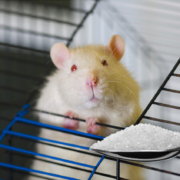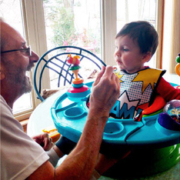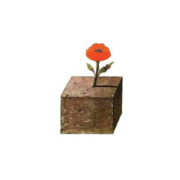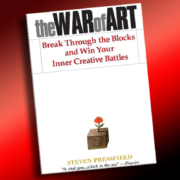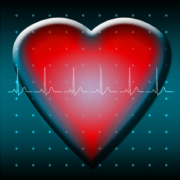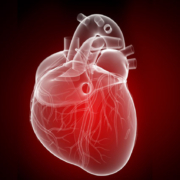Dr. Chet’s Health Memos
 If it’s in the health news today, I’ll be writing about it as soon as I read the research, both old and new. With my email Health Memos, you’ll know more about making lifestyle choices that will help you get and keep good health. These free, concise updates on health are emailed to subscribers twice a week. Subscribe today and get a free MP3, in English or Spanish, of Dr. Chet’s Top Ten Tips—Small Changes for a Healthier Life.
If it’s in the health news today, I’ll be writing about it as soon as I read the research, both old and new. With my email Health Memos, you’ll know more about making lifestyle choices that will help you get and keep good health. These free, concise updates on health are emailed to subscribers twice a week. Subscribe today and get a free MP3, in English or Spanish, of Dr. Chet’s Top Ten Tips—Small Changes for a Healthier Life.
Does Sucralose Prevent Cancer?
After Tuesday’s message, I’m sure that you were reading labels and getting ready to throw out foods that contain sucralose based on that single study (1). I’d wait a while, at least until I get finished reviewing this study. Today let’s take a look at another headline that says sucralose prevents cancer in some mice (2). This was an article written by Emily Willingham, a regular contributor to Forbes. She did what I usually do: read the actual research paper and then check out the claims the authors made. I’ve read it, but . . .
We're sorry, but this content is available to Members and Insiders only.
If you're already a DrChet.com Member or Insider, click on the Membership Login link on the top menu. Members may upgrade to Insider by going to the Store and clicking Membership; your membership fee will be prorated automatically.
Sucralose: A Tale of Two Headlines
One of my biggest complaints about health news is science by headline. Over the weekend, the headlines exploded with the news that in a recently published study, sucralose caused cancer! You know that’s going to catch my attention. Artificial sweeteners are part of the third-rail of health topics that include GMOs, soy, and vaccinations. What made this so interesting was that there was another headline based on the same study that said sucralose reduced the rate of cancer. That’s what we’re going to talk about this week.
Let’s start with the “sucralose causes cancer” headlines . . .
We're sorry, but this content is available to Members and Insiders only.
If you're already a DrChet.com Member or Insider, click on the Membership Login link on the top menu. Members may upgrade to Insider by going to the Store and clicking Membership; your membership fee will be prorated automatically.
Breastfeeding? Take Vitamin D
To recap the week, breastfed infants do not appear to be getting enough vitamin D. Neither the moms nor the infants are exposed to enough sunlight to make their own vitamin D, especially in winter. Moms who breastfeed and don’t supplement their infants with vitamin D don’t have adequate amounts of vitamin D in their breast milk. That leaves a logical question: what happens if the moms supplement their diet with vitamin D? Two recent studies asked that very question.
In the first study, Australian researchers gave pregnant women either a placebo, 1,000 IU vitamin D3, or . . .
We're sorry, but this content is available to Members and Insiders only.
If you're already a DrChet.com Member or Insider, click on the Membership Login link on the top menu. Members may upgrade to Insider by going to the Store and clicking Membership; your membership fee will be prorated automatically.
Vitamin D for Babies
The next logical question is this: if babies aren’t getting enough vitamin D from breast milk, will supplementing the babies’ diet with vitamin D3 increase vitamin D levels? Researchers examined data collected from the TARGet Kids! primary healthcare research network, a large cross-sectional study conducted in Canada, to answer the question.
The researchers examined data from over 2,500 breastfeeding mothers and infants who had vitamin D levels checked regularly. Those infants who were supplemented with vitamin D while breastfed had higher levels of vitamin D than those who were breastfed without taking a vitamin D supplement. The . . .
We're sorry, but this content is available to Members and Insiders only.
If you're already a DrChet.com Member or Insider, click on the Membership Login link on the top menu. Members may upgrade to Insider by going to the Store and clicking Membership; your membership fee will be prorated automatically.
Vitamin D and Breast Milk
Recent research on vitamin D reinforces the need for supplementation for infants and breastfeeding mothers. For those of you on Facebook, you’ve seen a picture of me with my pretend grandson Riley who will be one this month (when one of your pretend daughters has a baby, it’s your pretend grandchild). I want to make sure he stays healthy as he continues to grow. Vitamin D is important especially because he lives in Grand Rapids where sunshine is at a premium several months of the year. Let’s look at the research.
Breastfeeding is important for many reasons . . .
We're sorry, but this content is available to Members and Insiders only.
If you're already a DrChet.com Member or Insider, click on the Membership Login link on the top menu. Members may upgrade to Insider by going to the Store and clicking Membership; your membership fee will be prorated automatically.
Who Are You Cheating?
Let’s begin with how I found the excerpt I let you ponder for two days. While I listened to a podcast with Seth Godin, he recommended The War of Art by Steven Pressfield. I hope you’ve already bought it. If you have any angst about why you’re not doing what you want with your life, you have to read it.
The excerpt I included on Tuesday called me out. I’ve upped the volume of work I’m doing. The way I . . .
We're sorry, but this content is available to Members and Insiders only.
If you're already a DrChet.com Member or Insider, click on the Membership Login link on the top menu. Members may upgrade to Insider by going to the Store and clicking Membership; your membership fee will be prorated automatically.
Do It or Don’t Do It
Something a little different this week. Ponder this excerpt from The War of Art by Steven Pressfield.
“Are you a born writer? Were you put on earth to be a painter, a scientist, an apostle of peace? In the end the question can only be answered by action.
“Do it or don’t do it.
“It may help to think of it this way. If you were meant to cure cancer or . . .
We're sorry, but this content is available to Members and Insiders only.
If you're already a DrChet.com Member or Insider, click on the Membership Login link on the top menu. Members may upgrade to Insider by going to the Store and clicking Membership; your membership fee will be prorated automatically.
Your Heart and Tone
If you live to 80, your heart will beat an average of three billion times. That’s right: billion with a b. Faster when you exercise, slower when you’re at rest, it does its job 24 hours a day, seven days a week. What’s even more amazing is how your heart rate is controlled by the nervous system. I’ve always found it fascinating and here’s why.
The pacemaker of the heart we talked about on Thursday gets signals from nerves that tell it . . .
We're sorry, but this content is available to Members and Insiders only.
If you're already a DrChet.com Member or Insider, click on the Membership Login link on the top menu. Members may upgrade to Insider by going to the Store and clicking Membership; your membership fee will be prorated automatically.
Your Heart and Autorhythmicity
Your heart can beat over 200 times per minute during maximal exercise—give or take, depending on your age. Yet every beat is a succinct event made up of many steps with every one of those beats controlled by the electrical system of your heart. While that’s incredible in and of itself, the real story is one of the most amazing features of your heart called autorhythmicity.
Your heart has a special area in one chamber that stimulates it to beat; it’s called the sino-atrial node or the pacemaker. Think of that as . . .
We're sorry, but this content is available to Members and Insiders only.
If you're already a DrChet.com Member or Insider, click on the Membership Login link on the top menu. Members may upgrade to Insider by going to the Store and clicking Membership; your membership fee will be prorated automatically.
Your Heart and Syncytium
We’re finishing American Heart Month with some things you probably didn’t know about your heart. Your heart is unique in many ways and this week, you’re going to learn a few of them.
The heart muscle is similar to skeletal muscle in the way it contracts, but that’s where the similarity ends. While skeletal muscles are laid out in parallel fashion and independent of one another, the heart muscle splits and connects to other fibers. In that way, every heart muscle cell connects to every other heart muscle cell. That allows signals to be transferred very . . .
We're sorry, but this content is available to Members and Insiders only.
If you're already a DrChet.com Member or Insider, click on the Membership Login link on the top menu. Members may upgrade to Insider by going to the Store and clicking Membership; your membership fee will be prorated automatically.

